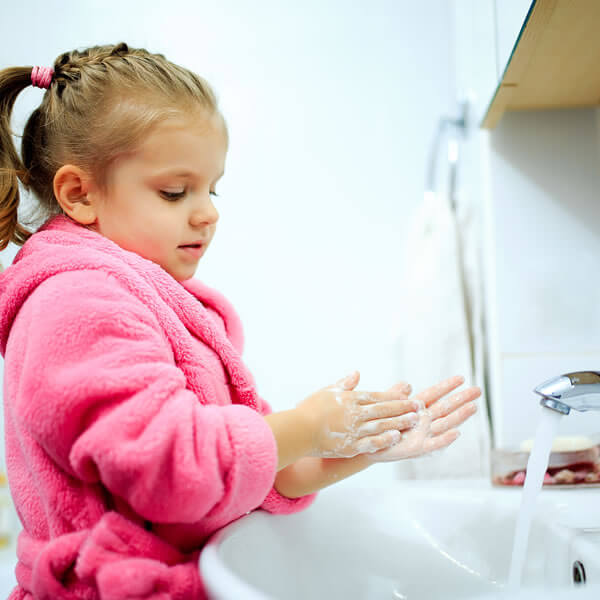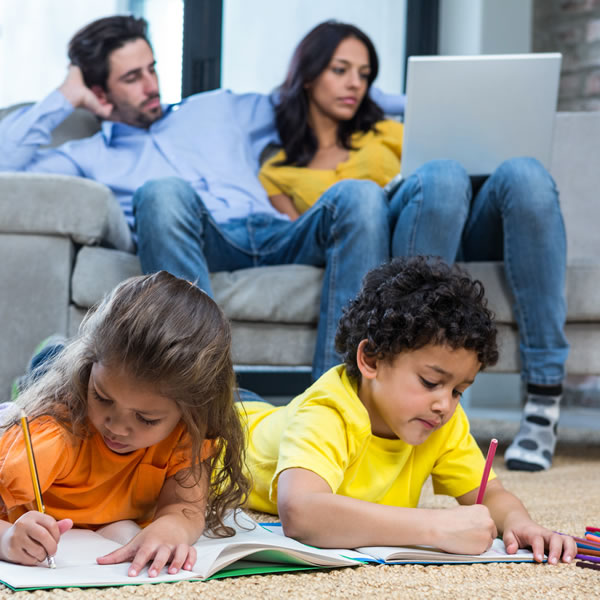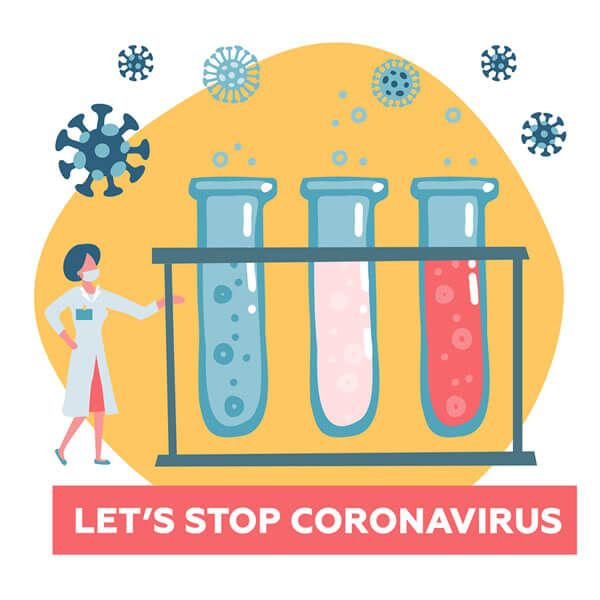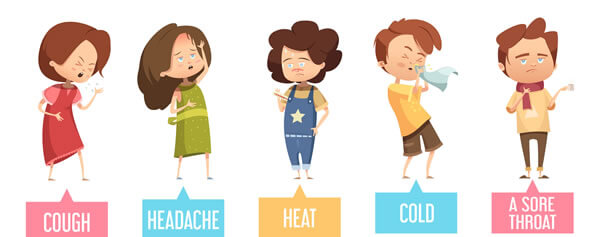How To Help Your Children (And Yourself) Get Through The Coronavirus Pandemic

At a time of year when we as parents are supposed to be getting ready for Spring Break, SOL’s, yard work, graduations, organized sports and other activities for our children with the weather warming up, we are instead hunkered down in our homes to protect ourselves from COVID-19. Within a very short time period, and globally now, COVID-19 has essentially changed the way families live their lives, and for many parents (and children) those changes have become increasingly difficult to manage.
Did you ever think that you would be talking to your children about social distancing, flattening the curve, quarantines, etc., or that you would be fearing for their safety and your own in response to a world wide health crisis? Did you ever imagine that your children would be out of school for a six month period or that the simple pleasures of daily life would suddenly become complicated, restricted or no longer even available? Did you ever believe that you would suddenly, all out once, be per force placed in a position that looked anything like this – where your financial, social and emotional security and wellbeing could be tested or challenged this greatly? No, no and no. None of us as parents expected any of this, and we are not prepared for it either. We are adjusting and learning as we go, and with that in mind, I respectfully offer the following parenting tips:
 Adjust your expectations. As parents we need to adjust our expectations to the new normal. Sure, our children need to do their school work as assigned and behave well, but the world just changed a lot over the past few weeks for them and there is a steep learning curve given all that has happened. In my opinion, it is just as important, if not more important, to focus on lovingly connecting with our children now than it is to focus on correcting them. School work and chores will eventually get done, but what matters most right now is our children’s emotional state and wellbeing. So, the next time you find yourself getting upset with your child for watching too much TV, gaming too much, or indulging in other ways, try to keep things in perspective.
Adjust your expectations. As parents we need to adjust our expectations to the new normal. Sure, our children need to do their school work as assigned and behave well, but the world just changed a lot over the past few weeks for them and there is a steep learning curve given all that has happened. In my opinion, it is just as important, if not more important, to focus on lovingly connecting with our children now than it is to focus on correcting them. School work and chores will eventually get done, but what matters most right now is our children’s emotional state and wellbeing. So, the next time you find yourself getting upset with your child for watching too much TV, gaming too much, or indulging in other ways, try to keep things in perspective.
Have a schedule…but be flexible. Without school, and with a lot of free time now, we as parents need to proactively structure our children’s time. Presently, there are several proposed schedules out there on social media, and many of them are good. In my opinion, being flexible when scheduling is important; structure does not need to feel like jail time for our kids and having their buy-in with rewards for output and accomplishments can be helpful. While each child is different, younger children most often benefit from having a fixed time for tasks across the entire day with frequent parental check-ins and guidance. Older children and teens on the other hand prefer checklists, which give them a greater sense of agency and independence when knocking down tasks.
Be mindful. Mindfulness is the concept of being 100% present in the moment while accepting all aspects of what that moment is or what it brings – without criticism, blame or judgement. As parents, Planet Earth has just delivered us the Herculean task of being mindfully present for our children morning, day and night 7 days a week – at least for the foreseeable future. While there is so much to worry about or be distracted by right now as adults, more than ever, our children need us to be present. So, whether you’re cooking, playing a board game, having a conversation, doing tasks, try to remember that your children will benefit most from your focusing on the moment and them fully.
Make yourself available for conversations. Keep in mind that our children – younger or older – do not possess the emotional resources to manage everything that is happening around them and to them as well as we do as adults, thus they are needing our support, guidance and understanding much more than before. So, while not every exchange with your children needs to be therapeutic, checking in with them periodically is advised.
 Model your best self. Our children learn how to think, feel and behave via their observations and experiences; as parents we are the most important people to our children, and thus they internalize or take in their main life lessons and developing identities from us. Thus, it is important that we model positivity throughout this difficult time. Our children need us to be loving, calm, hopeful, engaging, patient, inspiring and positive more than ever. Of course, as parents we are human and we’ll make mistakes, but we should still strive to model our best selves right now for our children.
Model your best self. Our children learn how to think, feel and behave via their observations and experiences; as parents we are the most important people to our children, and thus they internalize or take in their main life lessons and developing identities from us. Thus, it is important that we model positivity throughout this difficult time. Our children need us to be loving, calm, hopeful, engaging, patient, inspiring and positive more than ever. Of course, as parents we are human and we’ll make mistakes, but we should still strive to model our best selves right now for our children.
Consider your audience. Regardless of the concerning or upsetting information we as parents receive about COVID-19 via the media, school system or other places, we must always be mindful of what our children are capable of handling before discussing things. Just as you would not discuss death in the same way with 4-, 8- or 16-year-old children because of developmental differences, you would not do the same for the topic of COVID-19 with your children of varying ages. Moreover, limiting your children’s access to the deluge of news on COVID-19 is also probably a good thing given that the coverage could be anxiety producing and upsetting to them. And openly discussing COVID-19 with your partner or spouse, or with family and friends over the phone, is probably best done out of earshot of your children.
Take care of yourself. This is an extremely stressful time for parents and taking care of ourselves is essential. Getting enough sleep, eating healthily, exercising, connecting with loved ones, drinking alcohol in moderation (or not at all) and having alone time, are all important things to do – now more than ever. It is looking like COVID-19 may be a marathon and not a sprint, so practicing daily self-care is a must since returning to the ways things were may not happen any time soon.


Michael Oberschneider, Psy.D. is a clinical psychologist in private practice. He has been featured on CNN, Good Morning America and several other outlets. He can be reached at 703 723-2999, and is located at 44095 Pipeline Plaza, Suite 240, Ashburn, VA 20147.
